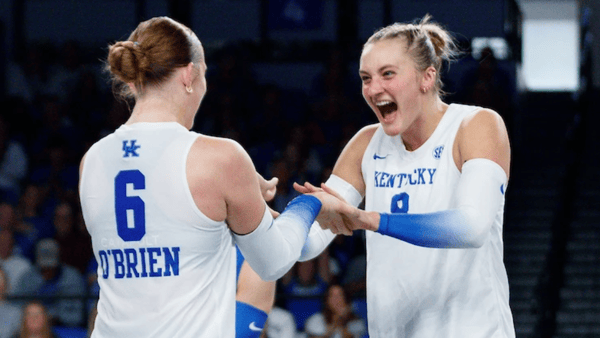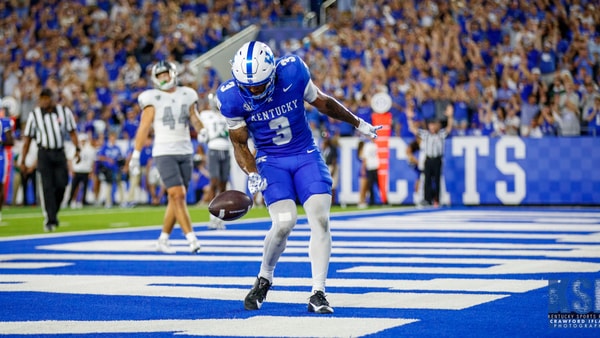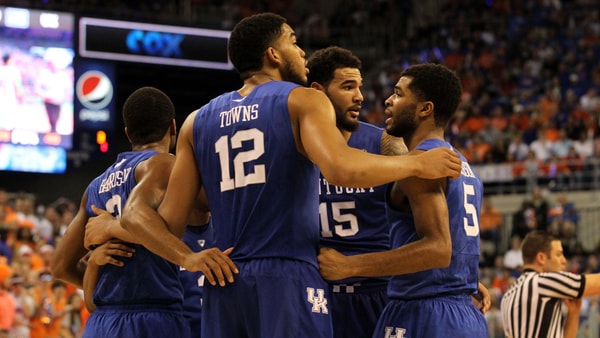
Every family, I suppose, boasts a relative shrouded in mystery, an enigmatic figure whose myth grows in time as memories fade and tales get taller.
For me, it's my great-grandfather,
A. Morgan Frumberg, a prominent St. Louis and Chicago attorney in the early 20th century. It was long family lore that Frumberg had some tangential connection to the nascent Jewish Mafia, and perhaps even a supporting role in the infamous Black Sox Scandal, in which mobster Arnold Rothstein fixed the 1919 World Series. (Rothstein, a prominent
real-life character on HBO's
Boardwalk Empire, was most famously memorialized as the fictional
Meyer Wolfsheim in
The Great Gatsby.)
Alas, when the book
Eight Men Out was released, the fanciful fable of my childhood was semi-confirmed: It turns out that Great-Grandpa
served as counsel to several of the lower-level gamblers who took the fall for the scheme, while Rothstein skated free, much to Frumberg's fury. That knowledge brought me the same kind of brush-with-celebrity perverse pride that I imagine enjoying if my son dated a Kardashian. (Thank God I only have daughters.)
The Black Sox Scandal likely was professional sport's lowest moment, saved only by the meteoric popularity of Babe Ruth and a new anti-gambling regime imposed by Baseball's first Commissioner, Kenesaw Mountain Landis. The autocratic Commish issued a lifetime
ban to the eight Chicago White Sox players involved in the fix.
Since then, sports wagering has always been targeted with special contempt by the powers that govern athletics on both the college and professional levels. The athletes in the middle have paid a steep price. The celebrated Adolph Rupp teams of the 1940s were rocked by a
point-shaving scandal that shattered the careers of the young players involved. In the late 1970s, another point-shaving conspiracy -- this one orchestrated by
Goodfellas' Henry Hill --
destroyed the lives of Boston College cagers caught up in the controversy. And, of course, Pete Rose became illegal betting's poster boy when he was
banned for life from baseball for betting on his own team. (Stay tuned for a future column on why Charlie Hustle deserves to be in the Hall of Fame.)
Accordingly, it was remarkable this week when new NBA Commissioner Adam Silver published an
op-ed in the
New York Times calling for the legalization of sports gambling. Breaking with a century-long tradition of his predecessors, who've often viewed the practice as public enemy number one, Silver wrote that "Congress should adopt a federal framework that allows states to authorize betting on professional sports, subject to strict regulatory requirements and technological safeguards."
Silver is right. It's time to legalize and regulate sports gambling. As the mobsters whose paths my great-grandfather crossed could testify, prohibition doesn't work. And driving "undesirable" behavior underground generally serves to make matters far worse.
===
Let me pause for an admission: I'm a sports gambler. No, I've never engaged a bookie, and my time spent in Vegas is at the
poker table, not the sports book. But for more than two decades, I've "played" in fantasy baseball leagues (and more recently, football) in which I put down money for the chance to win more, dependent on the players' statistics. What began as a collection of friend and family affairs has now emerged as a huge industry, and in some cases, much more professionalized via same-day and one-week online fantasy leagues (with companies like FanDuel and DraftKings, who seem to have bought all of ESPN's ad time). Fortunately, for those of us addicts, Congress
exempted fantasy from legislative bans on online wagering.
However, the American appetite for clearly unlawful sports wagering has not wavered. Some estimate the illegal sports gambling business to exceed $
400 billion a year.
Cue the
faux surprise of Captain Renault in
Casablanca: "I'm shocked, shocked to find out that gambling is going on here." Indeed, our nation's
Keystone Kops enforcement of anti-wagering statutes makes the War on Drugs look like an expertly effective effort.
But while we can laugh at the absurdity of our laws and turn our heads away from the behavior that few still find immoral, many serious real-world problems result from the status quo. It doesn't take more than a couple episodes of
The Sopranos to understand how gambling's illegality forces it into the shadows, denying appropriate public protection, and empowering and enriching the underworld, as thugs administer "justice" through usurious loans and violent collections. As those of us who played on-line poker in the early days can testify, cheating is rampant when the game is unlawful; and there's little resource for gamblers who find themselves the victim of fraudulent arrangements.
Just as our policymakers often treat sex with a public farce of Victorian morality that shields a private culture of consensual, sometimes flawed, human behavior, the hypocritical treatment of gambling creates a serious public policy problem where none would otherwise exist.
So let's listen to Silver and establish a federal structure that permits sports wagering under the strict eye of law enforcement officials, as opposed to organized crime. Congress should immediately repeal the Professional and Amateur Sports Protection Act of 1992 which prohibits states from permitting sports wagering. And a new regulatory regime should be imposed that would include the following suggestions made by Silver and others:
- The use of new geo-blocking and age-verification technology to ensure that sports wagering is conducted only in places where it is legal, and only by adults;
- The development of strict licensing procedures and the monitoring of especially large and unusual betting practices in order to protect the integrity of gambling operations and crack down on cheating;
- Educational programs that foster responsible gambling, complimented by protocol that can identify problem gamblers and prevent them from incurring further debt; and
- New professional and college sports rules that recognize the existence of gambling while shielding athletes from improper involvement.
Now before you haters start hating in the comments below, I readily agree that thousands of lives every year are ruined by compulsive gambling and its collateral damage. But that's precisely why sports wagering must be legalized and regulated. Sunlight is always the best disinfectant; and only when we take the practice out of the shadows and monitor it closely can we protect those who are at risk.
I bet my great-grandfather would be pleased to know that the Jewish Mafia is out of business. So in his spirit, let's kneecap today's organized criminals and take away this virtual tire iron they hold over the vulnerable.
 Every family, I suppose, boasts a relative shrouded in mystery, an enigmatic figure whose myth grows in time as memories fade and tales get taller.
For me, it's my great-grandfather, A. Morgan Frumberg, a prominent St. Louis and Chicago attorney in the early 20th century. It was long family lore that Frumberg had some tangential connection to the nascent Jewish Mafia, and perhaps even a supporting role in the infamous Black Sox Scandal, in which mobster Arnold Rothstein fixed the 1919 World Series. (Rothstein, a prominent real-life character on HBO's Boardwalk Empire, was most famously memorialized as the fictional Meyer Wolfsheim in The Great Gatsby.)
Alas, when the book Eight Men Out was released, the fanciful fable of my childhood was semi-confirmed: It turns out that Great-Grandpa served as counsel to several of the lower-level gamblers who took the fall for the scheme, while Rothstein skated free, much to Frumberg's fury. That knowledge brought me the same kind of brush-with-celebrity perverse pride that I imagine enjoying if my son dated a Kardashian. (Thank God I only have daughters.)
The Black Sox Scandal likely was professional sport's lowest moment, saved only by the meteoric popularity of Babe Ruth and a new anti-gambling regime imposed by Baseball's first Commissioner, Kenesaw Mountain Landis. The autocratic Commish issued a lifetime ban to the eight Chicago White Sox players involved in the fix.
Since then, sports wagering has always been targeted with special contempt by the powers that govern athletics on both the college and professional levels. The athletes in the middle have paid a steep price. The celebrated Adolph Rupp teams of the 1940s were rocked by a point-shaving scandal that shattered the careers of the young players involved. In the late 1970s, another point-shaving conspiracy -- this one orchestrated by Goodfellas' Henry Hill -- destroyed the lives of Boston College cagers caught up in the controversy. And, of course, Pete Rose became illegal betting's poster boy when he was banned for life from baseball for betting on his own team. (Stay tuned for a future column on why Charlie Hustle deserves to be in the Hall of Fame.)
Accordingly, it was remarkable this week when new NBA Commissioner Adam Silver published an op-ed in the New York Times calling for the legalization of sports gambling. Breaking with a century-long tradition of his predecessors, who've often viewed the practice as public enemy number one, Silver wrote that "Congress should adopt a federal framework that allows states to authorize betting on professional sports, subject to strict regulatory requirements and technological safeguards."
Silver is right. It's time to legalize and regulate sports gambling. As the mobsters whose paths my great-grandfather crossed could testify, prohibition doesn't work. And driving "undesirable" behavior underground generally serves to make matters far worse.
===
Let me pause for an admission: I'm a sports gambler. No, I've never engaged a bookie, and my time spent in Vegas is at the poker table, not the sports book. But for more than two decades, I've "played" in fantasy baseball leagues (and more recently, football) in which I put down money for the chance to win more, dependent on the players' statistics. What began as a collection of friend and family affairs has now emerged as a huge industry, and in some cases, much more professionalized via same-day and one-week online fantasy leagues (with companies like FanDuel and DraftKings, who seem to have bought all of ESPN's ad time). Fortunately, for those of us addicts, Congress exempted fantasy from legislative bans on online wagering.
However, the American appetite for clearly unlawful sports wagering has not wavered. Some estimate the illegal sports gambling business to exceed $400 billion a year.
Cue the faux surprise of Captain Renault in Casablanca: "I'm shocked, shocked to find out that gambling is going on here." Indeed, our nation's Keystone Kops enforcement of anti-wagering statutes makes the War on Drugs look like an expertly effective effort.
But while we can laugh at the absurdity of our laws and turn our heads away from the behavior that few still find immoral, many serious real-world problems result from the status quo. It doesn't take more than a couple episodes of The Sopranos to understand how gambling's illegality forces it into the shadows, denying appropriate public protection, and empowering and enriching the underworld, as thugs administer "justice" through usurious loans and violent collections. As those of us who played on-line poker in the early days can testify, cheating is rampant when the game is unlawful; and there's little resource for gamblers who find themselves the victim of fraudulent arrangements.
Just as our policymakers often treat sex with a public farce of Victorian morality that shields a private culture of consensual, sometimes flawed, human behavior, the hypocritical treatment of gambling creates a serious public policy problem where none would otherwise exist.
So let's listen to Silver and establish a federal structure that permits sports wagering under the strict eye of law enforcement officials, as opposed to organized crime. Congress should immediately repeal the Professional and Amateur Sports Protection Act of 1992 which prohibits states from permitting sports wagering. And a new regulatory regime should be imposed that would include the following suggestions made by Silver and others:
Every family, I suppose, boasts a relative shrouded in mystery, an enigmatic figure whose myth grows in time as memories fade and tales get taller.
For me, it's my great-grandfather, A. Morgan Frumberg, a prominent St. Louis and Chicago attorney in the early 20th century. It was long family lore that Frumberg had some tangential connection to the nascent Jewish Mafia, and perhaps even a supporting role in the infamous Black Sox Scandal, in which mobster Arnold Rothstein fixed the 1919 World Series. (Rothstein, a prominent real-life character on HBO's Boardwalk Empire, was most famously memorialized as the fictional Meyer Wolfsheim in The Great Gatsby.)
Alas, when the book Eight Men Out was released, the fanciful fable of my childhood was semi-confirmed: It turns out that Great-Grandpa served as counsel to several of the lower-level gamblers who took the fall for the scheme, while Rothstein skated free, much to Frumberg's fury. That knowledge brought me the same kind of brush-with-celebrity perverse pride that I imagine enjoying if my son dated a Kardashian. (Thank God I only have daughters.)
The Black Sox Scandal likely was professional sport's lowest moment, saved only by the meteoric popularity of Babe Ruth and a new anti-gambling regime imposed by Baseball's first Commissioner, Kenesaw Mountain Landis. The autocratic Commish issued a lifetime ban to the eight Chicago White Sox players involved in the fix.
Since then, sports wagering has always been targeted with special contempt by the powers that govern athletics on both the college and professional levels. The athletes in the middle have paid a steep price. The celebrated Adolph Rupp teams of the 1940s were rocked by a point-shaving scandal that shattered the careers of the young players involved. In the late 1970s, another point-shaving conspiracy -- this one orchestrated by Goodfellas' Henry Hill -- destroyed the lives of Boston College cagers caught up in the controversy. And, of course, Pete Rose became illegal betting's poster boy when he was banned for life from baseball for betting on his own team. (Stay tuned for a future column on why Charlie Hustle deserves to be in the Hall of Fame.)
Accordingly, it was remarkable this week when new NBA Commissioner Adam Silver published an op-ed in the New York Times calling for the legalization of sports gambling. Breaking with a century-long tradition of his predecessors, who've often viewed the practice as public enemy number one, Silver wrote that "Congress should adopt a federal framework that allows states to authorize betting on professional sports, subject to strict regulatory requirements and technological safeguards."
Silver is right. It's time to legalize and regulate sports gambling. As the mobsters whose paths my great-grandfather crossed could testify, prohibition doesn't work. And driving "undesirable" behavior underground generally serves to make matters far worse.
===
Let me pause for an admission: I'm a sports gambler. No, I've never engaged a bookie, and my time spent in Vegas is at the poker table, not the sports book. But for more than two decades, I've "played" in fantasy baseball leagues (and more recently, football) in which I put down money for the chance to win more, dependent on the players' statistics. What began as a collection of friend and family affairs has now emerged as a huge industry, and in some cases, much more professionalized via same-day and one-week online fantasy leagues (with companies like FanDuel and DraftKings, who seem to have bought all of ESPN's ad time). Fortunately, for those of us addicts, Congress exempted fantasy from legislative bans on online wagering.
However, the American appetite for clearly unlawful sports wagering has not wavered. Some estimate the illegal sports gambling business to exceed $400 billion a year.
Cue the faux surprise of Captain Renault in Casablanca: "I'm shocked, shocked to find out that gambling is going on here." Indeed, our nation's Keystone Kops enforcement of anti-wagering statutes makes the War on Drugs look like an expertly effective effort.
But while we can laugh at the absurdity of our laws and turn our heads away from the behavior that few still find immoral, many serious real-world problems result from the status quo. It doesn't take more than a couple episodes of The Sopranos to understand how gambling's illegality forces it into the shadows, denying appropriate public protection, and empowering and enriching the underworld, as thugs administer "justice" through usurious loans and violent collections. As those of us who played on-line poker in the early days can testify, cheating is rampant when the game is unlawful; and there's little resource for gamblers who find themselves the victim of fraudulent arrangements.
Just as our policymakers often treat sex with a public farce of Victorian morality that shields a private culture of consensual, sometimes flawed, human behavior, the hypocritical treatment of gambling creates a serious public policy problem where none would otherwise exist.
So let's listen to Silver and establish a federal structure that permits sports wagering under the strict eye of law enforcement officials, as opposed to organized crime. Congress should immediately repeal the Professional and Amateur Sports Protection Act of 1992 which prohibits states from permitting sports wagering. And a new regulatory regime should be imposed that would include the following suggestions made by Silver and others:








Discuss This Article
Comments have moved.
Join the conversation and talk about this article and all things Kentucky Sports in the new KSR Message Board.
KSBoard